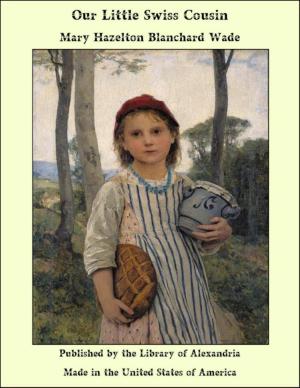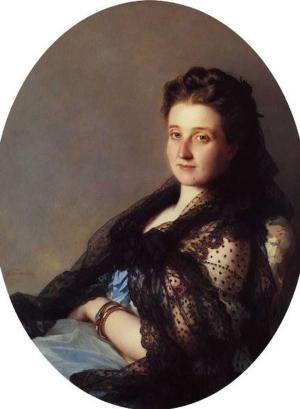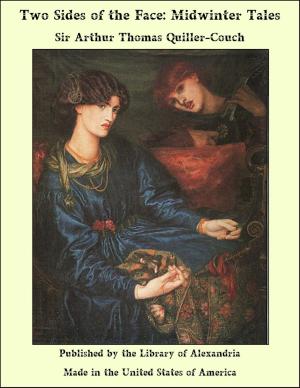Through the Postern Gate:A Romance in Seven Days
Nonfiction, Religion & Spirituality, New Age, History, Fiction & Literature| Author: | Florence Louisa Barclay | ISBN: | 9781465608284 |
| Publisher: | Library of Alexandria | Publication: | March 8, 2015 |
| Imprint: | Language: | English |
| Author: | Florence Louisa Barclay |
| ISBN: | 9781465608284 |
| Publisher: | Library of Alexandria |
| Publication: | March 8, 2015 |
| Imprint: | |
| Language: | English |
He lay back, in a deep wicker chair, under the old mulberry-tree. He had taken the precaution of depositing his cup and saucer on the soft turf beneath his chair, because he knew that, under the stress of sudden emotion, china—especially the bestchina—had a way of flying off his knee. And there was no question as to the exquisite quality of the china on the dainty tea-table over which Miss Christobel Charteris presided. The Boy had watched her pouring the tea into those pretty rose-leaf cups, nearly every afternoon during the golden two weeks just over. He knew every movement of those firm white hands, so soft, yet so strong and capable. The Boy used to stand beside her, ready to hand Mollie's cup, as punctiliously as if a dozen girls had been sitting in the old garden, waiting to be quickly served by the only man. The Boy enjoyed being the only man. Also he had quite charming manners. He never allowed the passing of bread-and-butter to interfere with the flow of conversation; yet the bread-and-butter was always within reach at the precise moment you wanted it, though the Boy's bright eyes were fixed just then in keenest interest on the person who happened to be speaking, and not a point of the story, or a word of the remark, was missed either by him or by you. He used to watch the Aunt's beautiful hands very closely; and at last, every time he looked at them, his brown eyes kissed them. The Boy thought this was a delightful secret known only to himself. But one day, when he was bending over her, holding his own cup while she filled it, the Aunt suddenly said: "Don't!" It was so startling and unexpected, that the cup almost flew out of his hand. The Boy might have said: "Don't what?" which would have put the Aunt in a difficulty, because it would have been so very impossible to explain. But he was too honest. He at once didn't, and felt a little shy for five minutes; then recovered, and hugged himself with a fearful joy at the thought that she had known his eyes had kissed her dear beautiful hands; then stole a look at her calm face, so completely unmoved in its classic beauty, and thought he must have been mistaken; only—what on earth else could she have said "Don't!" about, at that moment? But Mollie was there, then; so no explanations were possible. Now at last, thank goodness, Mollie had gone, and his own seven days had begun. This was the first day; and he was going to tell her everything. There was absolutely nothing he would not be able to tell her. The delight of this fairly swept the Boy off his feet. He had kept on the curb so long; and he was not used to curbs of any kind.
He lay back, in a deep wicker chair, under the old mulberry-tree. He had taken the precaution of depositing his cup and saucer on the soft turf beneath his chair, because he knew that, under the stress of sudden emotion, china—especially the bestchina—had a way of flying off his knee. And there was no question as to the exquisite quality of the china on the dainty tea-table over which Miss Christobel Charteris presided. The Boy had watched her pouring the tea into those pretty rose-leaf cups, nearly every afternoon during the golden two weeks just over. He knew every movement of those firm white hands, so soft, yet so strong and capable. The Boy used to stand beside her, ready to hand Mollie's cup, as punctiliously as if a dozen girls had been sitting in the old garden, waiting to be quickly served by the only man. The Boy enjoyed being the only man. Also he had quite charming manners. He never allowed the passing of bread-and-butter to interfere with the flow of conversation; yet the bread-and-butter was always within reach at the precise moment you wanted it, though the Boy's bright eyes were fixed just then in keenest interest on the person who happened to be speaking, and not a point of the story, or a word of the remark, was missed either by him or by you. He used to watch the Aunt's beautiful hands very closely; and at last, every time he looked at them, his brown eyes kissed them. The Boy thought this was a delightful secret known only to himself. But one day, when he was bending over her, holding his own cup while she filled it, the Aunt suddenly said: "Don't!" It was so startling and unexpected, that the cup almost flew out of his hand. The Boy might have said: "Don't what?" which would have put the Aunt in a difficulty, because it would have been so very impossible to explain. But he was too honest. He at once didn't, and felt a little shy for five minutes; then recovered, and hugged himself with a fearful joy at the thought that she had known his eyes had kissed her dear beautiful hands; then stole a look at her calm face, so completely unmoved in its classic beauty, and thought he must have been mistaken; only—what on earth else could she have said "Don't!" about, at that moment? But Mollie was there, then; so no explanations were possible. Now at last, thank goodness, Mollie had gone, and his own seven days had begun. This was the first day; and he was going to tell her everything. There was absolutely nothing he would not be able to tell her. The delight of this fairly swept the Boy off his feet. He had kept on the curb so long; and he was not used to curbs of any kind.















